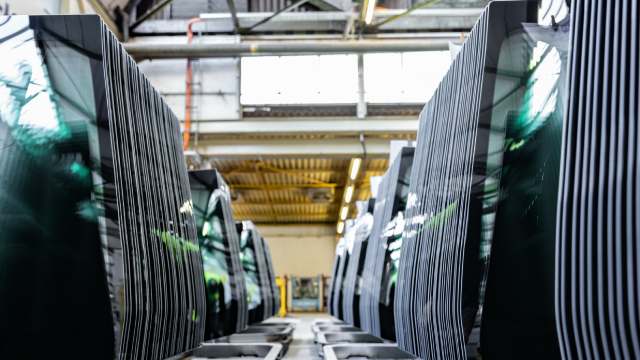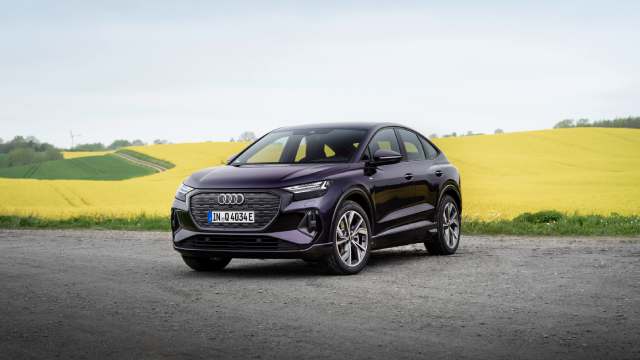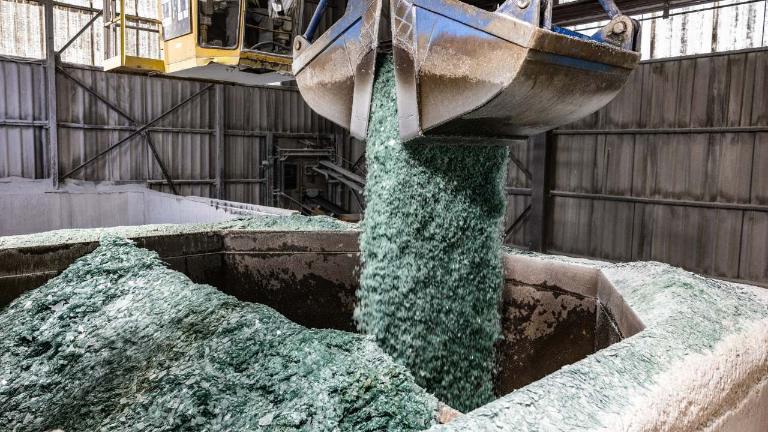Audi GlassLoop, closed-loop glass cycle enters production
Circular economy and closed-loop material cycles are key elements for sustainability. After a year of testing, Audi is ready to start series production of Q4 e-tron windshields using up to 30 percent recycled material from car windows damaged beyond repair.
Audi's 360-degree commitment to sustainability also covers recycling processes and the implementation of closed material cycles. Such is the case with Audi Q4 e-tron windshields, which in the near future will be made of up to 30% recycled material from irreparably damaged car windows. This innovative procedure, ready to debut in series production, comes from the "GlassLoop" pilot project.
Through cooperation with its partner companies, Audi is the first premium car manufacturer to set up a closed-loop glass cycle of this kind. Until now, in fact, severely damaged glass - mainly windshields and panoramic roofs - has been used for less demanding purposes, such as bottles or insulation materials, in a process known as downcycling.
Quality without compromise
The pilot project demonstrated that glass could be reused at comparable quality. Audi presented how the process works during the Greentech Festival 2023 in Berlin, of which it has been a founding partner since 2020.
Audi GlassLoop showed how closed-loop materials can be integrated into manufacturing processes; the partner companies - Reiling Glas Recycling, Saint-Gobain Glass, and Saint-Gobain Sekurit - took a year to fine-tune the process to make Audi Q4 e-tron windshields using increasing percentages of automotive-derived secondary glass. The process consists of crushing crystals that are no longer usable into small pieces with an innovative procedure; then all non-glass elements, like glue residue, are removed. At this point, partner companies melt the glass granulate and feed it into the automotive glass production process.

The life cycle
Thus, as of September 2023, the amount of recycled glass included in the production of Audi Q4 e-tron windshields will reach up to 30 percent of the total glass needed.
"If we process car windows that can no longer be repaired so that they are suitable for automotive production again, we need less raw material overall and avoid downcycling car windows that can no longer be repaired", explains Philipp Eder, Project Manager for Circular Economy in the Supply Chain at Audi. In other words, the use of processed glass granulate makes it possible to reduce the use of primary material like quartz sand.
Act4Impact
The "GlassLoop" project is part of Audi's Act4Impact program targeting supply chains with the goal of minimizing their impact on people and the environment. Recognition of this commitment also came from being awarded the German Award for Sustainability Projects in the "Recycling Concept" category. This award is granted by the Deutsches Institut für Service-Qualität (German Institute for Service Quality), the ntv news network, and DUP UNTERNEHMER magazine, sponsored by retired German Minister of the Economy Brigitte Zypries.

Circular Economy
Audi intends to establish further closed-loop material cycles, increasing the use of secondary materials wherever it makes ecological and economic sense, so as to save raw materials and reduce the environmental impact of products. "Our goal is to recover as much material as possible and put it back into production without compromising on quality", emphasizes AUDI AG CEO Markus Duesmann.
The goal of the circular economy is to preserve material grade and quality for as long as possible, a critical condition for making them usable again within the automotive industry and not relegating them to less demanding uses. Post-consumer materials, which means those that come from vehicles at the end of their life cycle, also play an important role, and here again the goal is to minimize downcycling, that is, the quality decline of materials related to the recycling process.
Source: AUDI AG
VGI | Responsible OU: VP | Creation date: article date | Class 9.1
